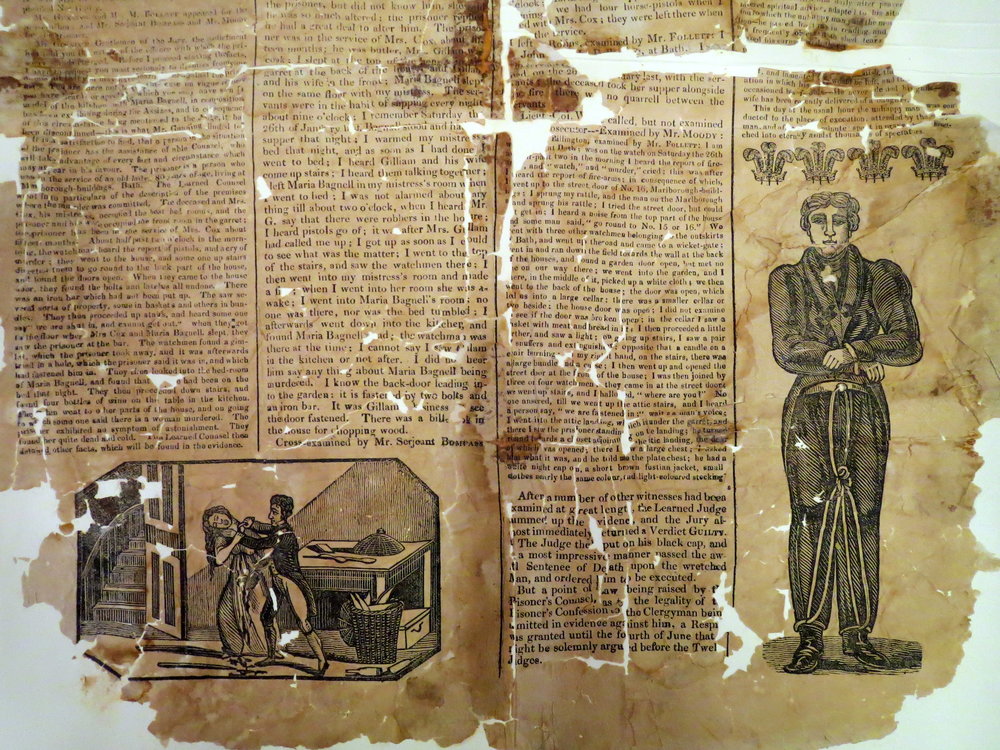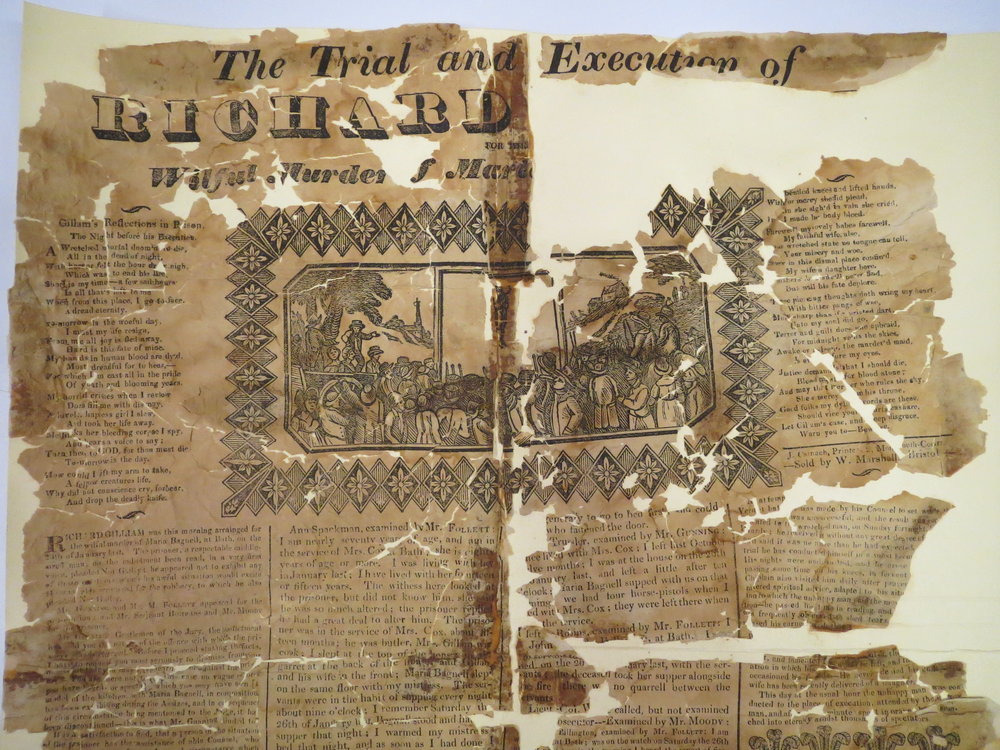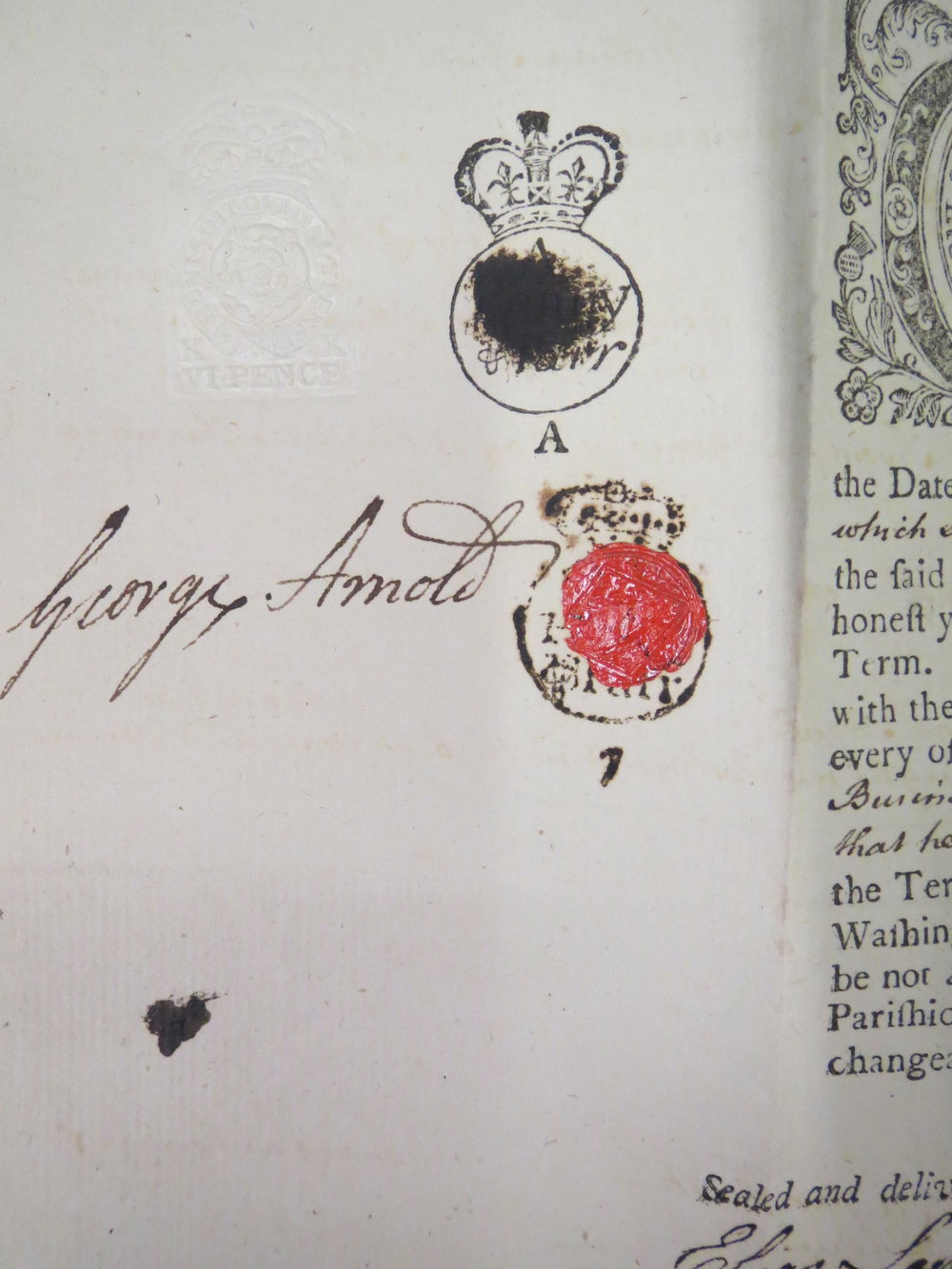Bath Record Office Visit
Follow up visit: Bath Record Office:
Following my first session as a regular volunteer at Bath Record Office (particularly timely with this project!) where I work with other volunteers to catalogue/archive material to ensure its accessibility to the public I met Colin Johnston for a quick catch up and to go through additional sources obtained since my visit two weeks ago. Having taken on board my request for ‘Darker’ crimes Colin firstly produced an original period newspaper with the prominent headline ‘The Trial and Execution of Richard Gill: For the willful murder of Maria Bagnell’. I learnt that this murder took place in number 16 Marlborough buildings on April 21st 1828 (A building still standing today- I wander if the present owners are aware of this particular history!) The illustrated newspaper and published accounts, which include a poetic account of the court trial and execution itself serve as typical examples of the Georgian publics interest and fascination in crimes of this nature which to quote Colin became ‘a source of public entertainment.’
Just as he’d finished telling me about this out came an original sword handle from a vicious contested duel fought in November 1778 between two ‘foreign adventurers’; Count Rice and Vicomte du Barri at Calverton Down. The handle belonged to Count Rice’s sword, having won the duel. A published account of the duel titled ‘The Duel of 1778’ is available with further information online and it was interesting to learn that Du Barri was found guilty of manslaughter only.
On a lighter but equally pertinent note Colin had also taken into account my interest in the position and social circumstances of girls and women during the Georgian period. As requested he had sourced more pauper apprenticeship certificates but this time of the girl orphans of St James’s church.Whilst the handwritten certificates are beautifully written suggesting prestigious occupations beneath their surface the written content tells a different story with occupations including ‘Bar maid’ and ‘Laundry girl’- in other words free child labor with these apprenticeships spanning over ten years. Clearly the social circumstances of these girl orphans were taken huge advantage of by greedy employers. Furthermore a settlement examination relating to ‘Margaret Selby’ exemplifies the poor and destitute women living in Bath during the period- the other side of the grand Georgian exterior and spa town Bath was and still is heavily identified with.
With the deadline for call out approaching and a vast amount of material gathered so far I will be taking a break from gathering any additional source material over the next couple of weeks but will be consulting the sources I have obtained in conjunction with the submissions received to form my selection of artists.




